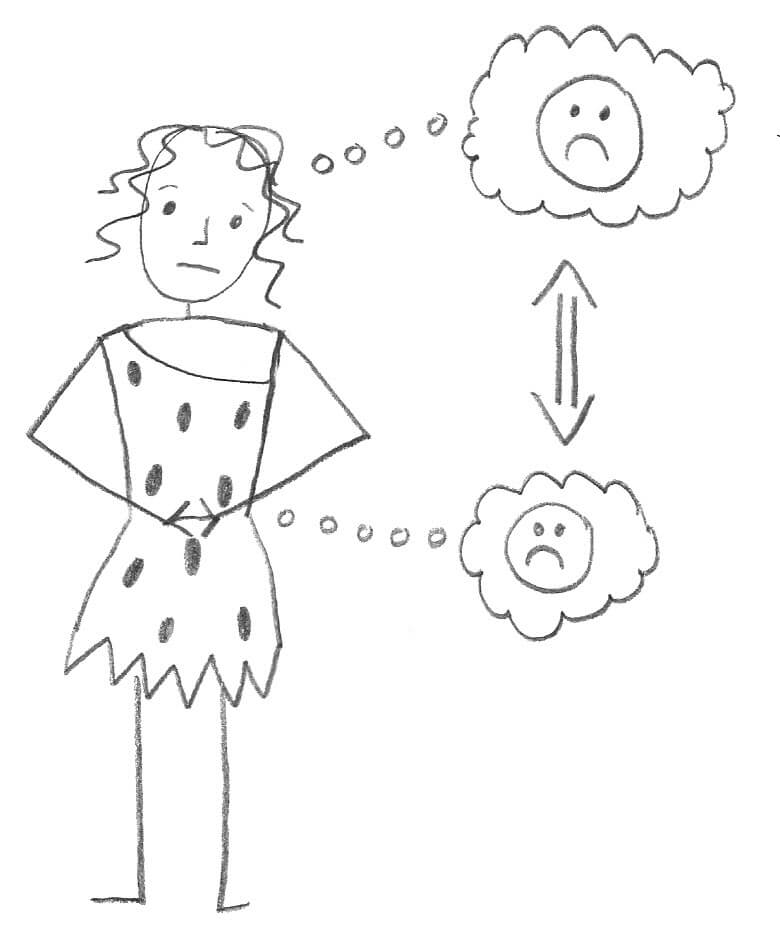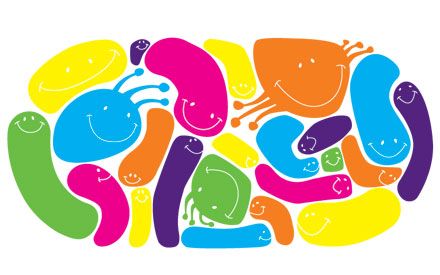Fermented Foods, Probiotics & Tempeh
We are bombarded everyday with information about the state of health in North America. More than daily. It is non-stop chatter. It makes us do one of two things: 1) ignore it and rebel against it by “doing what I want!” or 2) become close to obsessive about everything we eat/touch/breathe – or continually flip-flop between these two all-or-nothing “solutions”. While wanting to “do good” is generally a good thing, this blog is not intended to tell you what you should or shouldn’t do, nor give you any tips disguised as the magic bullet to all healing. Truth be told, there isn’t one good thing to do and there isn’t one bad thing that is going to take you out. There are just hundreds of little decisions that we consciously or unconsciously make everyday. What you decide is generally a good prescription for you, might not be the right fit for the next guy. We are all different physically, mentally and socially and true health is a combination of it all. So, why the long-winded opening?
At Amaranth, we get a lot of questions about what is the best thing to do, not to do, take, not take, eat, not eat… see a pattern here? And the answer is that it depends. It depends on where you are in your journey, what specific needs you have, what you like and don’t like and where your health is. It really is a glorious thing. You decide what feels right for you. You are the host that decides who gets “invited." Think about it. What is best for us is a combination of lots of positives and negatives. So, when we talk recipes, new ingredients and “health enhancement” we are just talking. You decide what intrigues you and what you can leave aside. You decide what sparks your curiosity. There is no perfect prescription for success and you will know where you want to put your efforts and that is okay.
Today, we are going to talk about friendly microbes in the gut and how research is beginning to see how this may affect mental health. We will be reminded about other benefits, how we can get them from food or supplements and of course making something yummy that we can eat.
This can be a little unsettling to some, but just to give a big picture, did you know that you have more bacterial cells in your body than human cells? Yup. If you added up all of the different kinds of bacteria and all of their populations that live in our gut, on our skin and here and there, we are actually more bacteria than people. Now, before you get itchy…this is a good thing. This keeps us alive. Critters like lactobacilli and bifidiobacteria (good bacteria) help:
- Digest our food
- Decrease bad bacteria populations in the gut and on your skin including fungus, yeast and pathogens
- Promote regular bowel movements and relieve diarrhea and constipation
- Manufacture some of our vitamins (B and K) and help us to absorb minerals
- Promote healthy skin
- Work to prevent food poisoning
- Enhance immune function
- Promote healthy cholesterol levels
And more. One of those “mores”, is mental health. A relatively new field of research is emerging where study is focused on how bacteria that live in our gut, good and bad, contribute to our mental health, including depression and anxiety. Bad bacteria are being studied regarding the toxins that they give off in our system. They are organisms. They have to eat and therefore have wastes. Humans rid themselves of waste through things like sweating, breathing, and of course the work of the colon and kidneys. Well these bacteria give off waste as well. This waste can enter the blood stream and have an effect on the brain.
The other communication between the gut and the brain that is being researched is the vagus nerve. It appears that the good bacteria in the gut actually produce a substance called GABA. GABA is also produced in the brain, having a calming effect on the system. It seems that our vagus nerve may actually transmit GABA from the gut to our brain, sending an anti-stress signal. More research is needed, but it is an interesting look at another piece of information that contributes to the concern over the HUGE increase in anxiety and depression amongst both adults and children.
Depression and anxiety is a puzzle with many pieces and there is not a single cause or solution. But, just like ingredients in a recipe, each one plays a role to getting brownies. Also, your brownie recipe might not have the same ingredients as someone elses.
So, why do we have to worry about the good bacteria in there? Doesn’t it just do its thing automatically? Well, the problem is that there are many factors that decrease good bacteria populations. Think about things that kill germs. They also kill the good ones. The obvious is antibiotics, but also things like chlorinated water, alcohol, preservatives, radiation, etc. Good bacteria are also affected by over the counter and prescription drugs (antacids, steroids, hormones, birth control, anti-histamines, etc) and even stress. Does it mean that we can’t have any of these things if we want to be healthy? Remember back to the beginning of this chat. Life is about balance. You are going to have some of these things. Some people will need to replenish their good bacteria moderately and some will have to work harder on it. You know who you are. So, how do you invite these guys to your party?
Fermented Foods and Probiotics.
Food is a great place to start. Fermentation was used by our ancestors as a preservation method. Think sauerkraut and fermented pickles. Miso has been made in Japan for eons by fermenting soybeans, in Korea, kimchi is made from cabbage and an Indonesian tradition includes tempeh often thought of as a cousin to tofu. Milk can be fermented into things like yogurt and kefir and modern foodies are continuing and expanding ferments by working with carrots, daikon, radishes and even making cheese by fermenting nuts and drinking interesting beverages like Kombucha.
Fermentation is the process by which foods are broken down by microorganisms. These microorganisms are good bacteria for your body and when you eat them (providing they haven’t been pasteurized afterwards as that will kill the bacteria) you are replenishing your populations.
Another way to get good bacteria is from supplements, specifically probiotics. Why are they called supplements? Well, because they are most effective when they “supplement” a good diet and healthy lifestyle. If they could do their job well without said diet and lifestyle, well, they would be called “replacements," not supplements. “Hey, I will be right there, just taking my replacements!” Supplements are a great way to get the therapeutic quantity that we might require of a substance. It is recommended to consume a minimum of 10 million live bacteria a day. Fermented foods are a good start and provide other great benefits. Supplements can take you the rest of the way and a natural health care provider can suggest a specific dosage for you (you can get probiotics that have billions per dosage). There are also probiotics that help with certain conditions, ones that are pills, powders or liquids, and ones that need to be in the fridge versus others that are shelf stable.
So, if you are wanting to add more fermented foods or probiotics to your day, let’s do some good eating! As mentioned above, tempeh is a fermented food that is often confused with tofu. While tofu is made by curdling fresh hot soymilk with a coagulant and then pressing the curds into bricks, tempeh is made by combining whole cracked soybeans with Rhizopus mould (a live culture). Left to ferment, this produces an enzyme called phytase which breaks down phytates (which can give soy a bad name in some healthy eating circles), thereby increasing the absorption of minerals such as zinc, iron and calcium from the soybeans. The fermentation process greatly reduces the oligosaccharides that make beans hard to digest for some people. In addition to making the beans more digestible and the minerals more accessible, the process that turns soybeans into tempeh also increases the amount of protein and fibre.
In addition to providing the body with probiotics, tempeh also includes isoflavonoids that help to reduce cell damage. Regular consumption of tempeh can help to reduce the negative side effects of menopause and has been linked to a reduced risk of developing prostate cancer.
Soy is something highly debated by many. Almost all soy consumed in North America is highly processed (cracked, dehulled, crushed, solvent extracted for oils and protein isolates) and in most cases genetically modified and sprayed heavily with pesticides. All of this has contributed to many people developing soy intolerances and allergies. So, it may be important to select certified organic soy products and consume them most often in their whole form with a preference for being fermented.
Java Indo Tempeh is a family run business based in Calgary, Alberta. They are originally from Indonesia, where they grew up eating tempeh as a staple in their diet. Prior to moving to Calgary in 2007 they made their own tempeh in both Indonesia and Sydney, Australia. They use only certified organic and non GMO soy beans in their tempeh and are currently the only tempeh producers in this city. They are driven by the desire to share their organic tempeh with those already familiar with the product as well as those eager to try a new, healthy and locally produced food.
Available frozen, Java Indo Tempeh is packaged in original, or with a marinate such as sweet & spicy and Indonesian white curry. Follow the package directions for marinating the tempeh and cooking it to your liking. You can use it in everything from sandwiches to tacos to casseroles. If you have questions about this interesting product, or would like to give it a taste, Swani from Java Indo will be at Amaranth, Arbour Lake location on Tuesday, November 19th from 11-1pm sampling her locally made tempeh.
Blog post written by Amy Buckman & Paul Pearson






